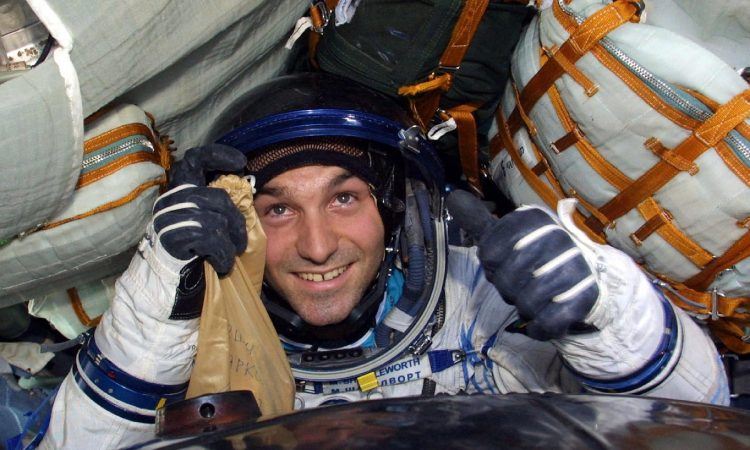
Mark Richard Shuttleworth (b.1973) is a South African businessman, best known for founding Canonical Ltd., the company that developed the popular Linux Ubuntu operating system. He made history as the first African to reach space as a tourist in 2002, at the same time being the second space tourist, after the American businessman and engineer Dennis Tito, who in April 2001 traveled to space on his own money at aboard the Soyuz-TM32 spacecraft, spending nearly eight days in orbit as a member of the ISS EP-1 crew, a visiting mission to the International Space Station.
Shuttleworth currently lives in London and holds dual South African and English citizenship.
Born on 18 September 1973 in Welkom, Free State, South Africa, Shuttleworth attended prestigious schools such as Western Province Preparatory School and Bishops/Diocesan College. He earned a Bachelor of Science in Business, Finance and Information Systems from the University of Cape Town. As a student, he was involved in the installation of the first Internet connections at his university.
In 1995, Shuttleworth founded Thawte Consulting, a company specializing in digital certificates and Internet security. In December 1999, he sold Thawte to VeriSign for $575 million. In September 2000, he founded HBD Venture Capital (Here be Dragons), a business incubator and venture capital provider, currently managed by Knife Capital. In March 2004, he founded Canonical Ltd., to promote and commercially support free software such as Ubuntu.
He has also been involved in Debian since the 1990s (Debian, also known as Debian GNU/Linux, is a Linux distribution composed of free and open-source software and, optionally, firmware or non-free software developed by the community-supported Debian, which was founded by Ian Murdock on 16 August 1993) and established the Shuttleworth Foundation in 2001 to support social innovation projects in South Africa.
In addition to his achievements in technology, Shuttleworth is an advocate of open-source software and has invested in various startups.
On April 25, 2002, Shuttleworth lifted off from the Baikonur Cosmodrome in Kazakhstan aboard the Soyuz TM-34 spacecraft with two astronauts, Commander Iury Gidzenko of Russia and Flight Engineer Roberto Vittori of Italy, and docked two days later with the ISS. He thus entered history as the first African who as a space tourist. During his eight-day mission, he participated in AIDS-related experiments and genome research on the International Space Station before returning to Earth. Before his space journey, Mark Shuttleworth underwent a year of training and instruction in Kazakhstan and at Star City, an area of Moscow, Russia that has been home to the Cosmonaut Training Center since the 1960s, where Yuri Gagarin, the first man, also trained which performed a mission in Earth orbit on April 12, 1961.
Mark conducted several experiments during his spaceflight, including, and for the first time, evaluating the impact of zero gravity on the development of stem cells and embryos. Another aimed to determine the effect of microgravity on the cardiovascular system and muscles. A third was an attempt to crystallize HIV proteins in weightlessness in the hope that when X-rayed they would provide an accurate picture of the virus’s structure, with all its experiments managed by world-class South African scientists from the Universities of Cape Town, Stellenbosch and Port Elizabeth, in collaboration with Russian space science experts.
Shuttleworth holds dual South African and British citizenship and has an estimated fortune of £500m, according to the 2020 Sunday Times Rich List.
He is also an avid adventurer who has undertaken numerous expeditions, including trekking to Antarctica and to the summits of some of the world’s highest mountains, including Everest (Asia).
Shuttleworth is also a renowned philanthropist and wildlife activist, particularly in Africa, concerned with endangered species and conserving the continent’s biodiversity. By leveraging advances in areas such as data analysis, remote sensing and , Shuttleworth seeks to improve strategies for monitoring, tracking and protecting endangered species. In addition, Shuttleworth’s initiatives often involve working with key local communities, conservation organizations and government agencies to develop holistic conservation plans that benefit both wildlife and people.
Sources:

